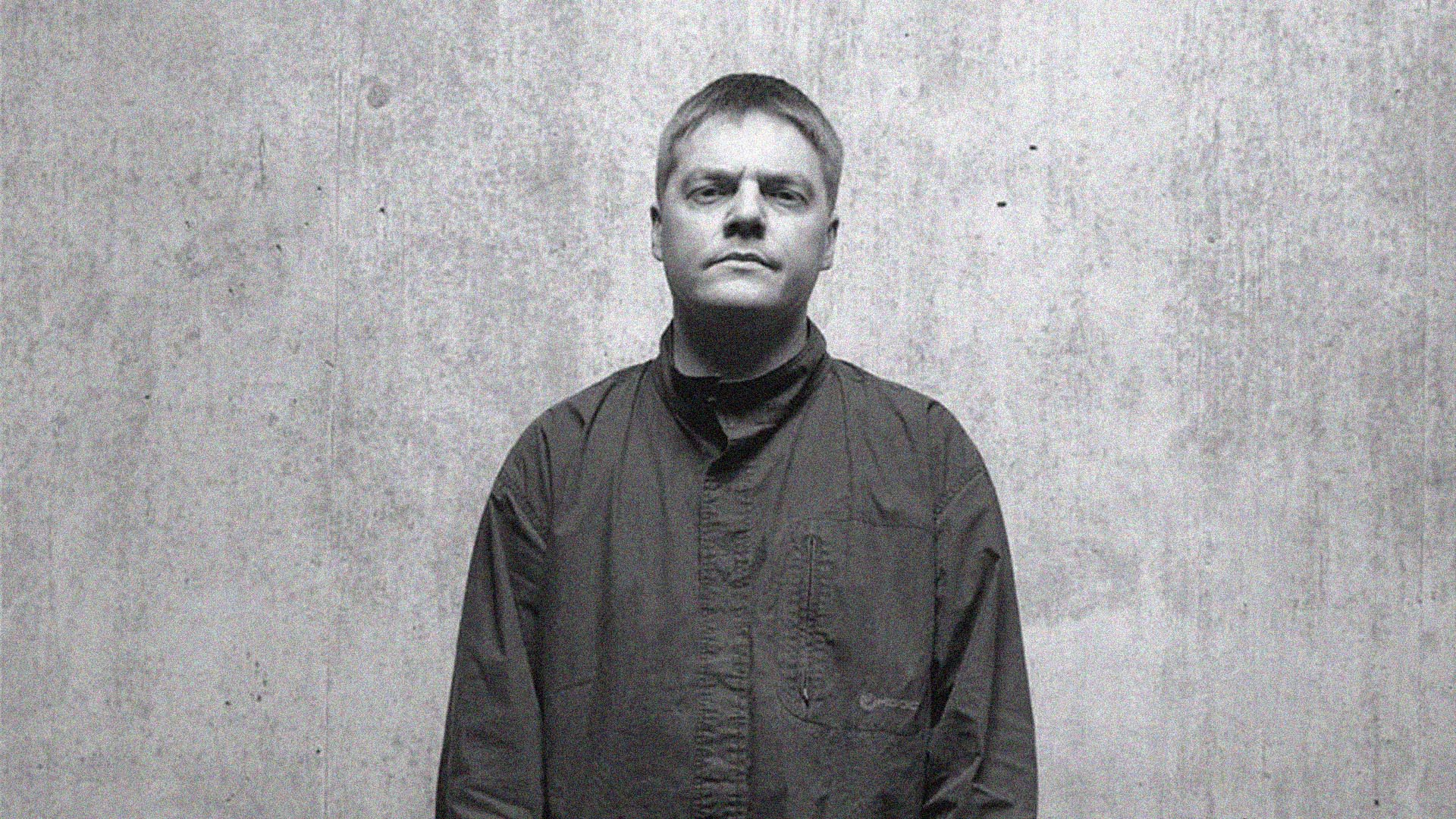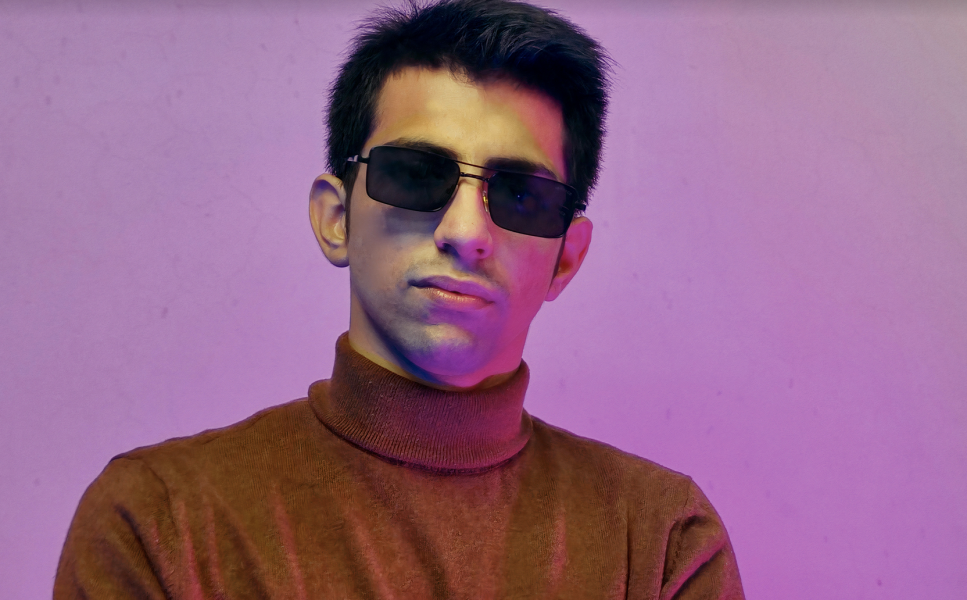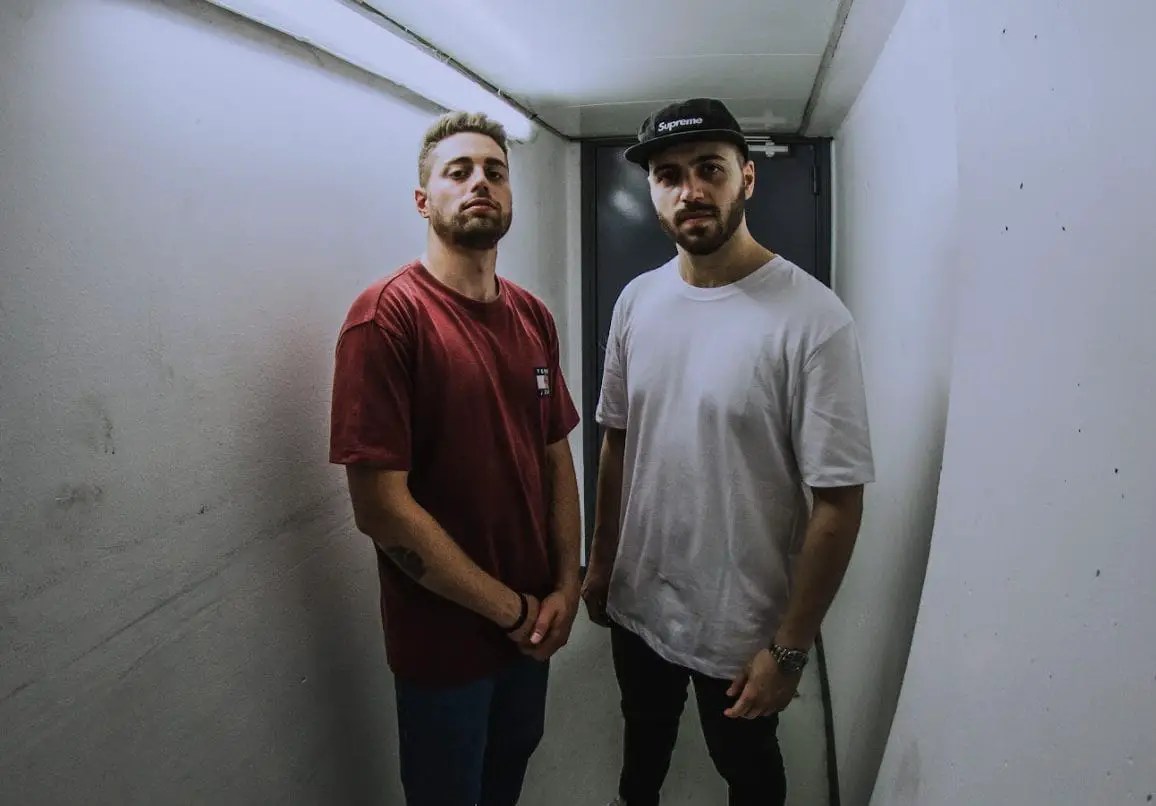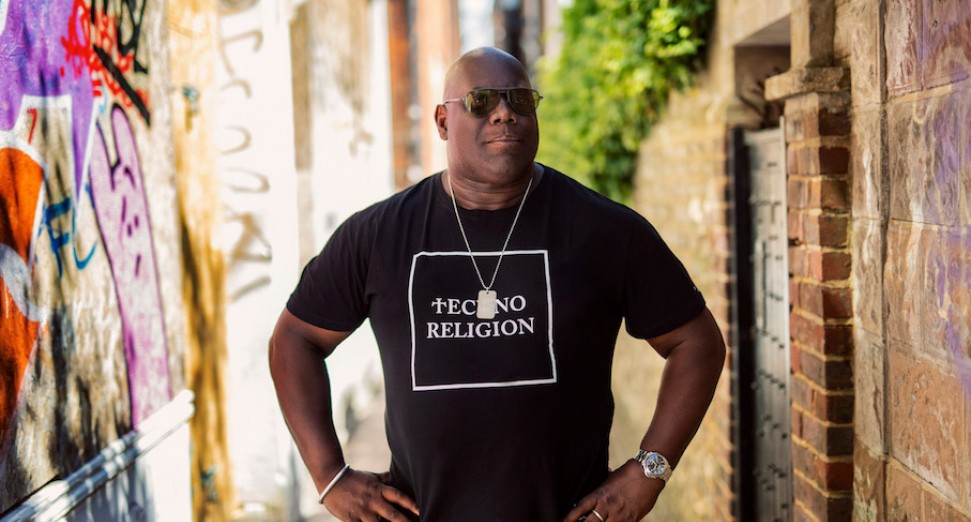
808 State's Andy Barker was an integral part of Manchester’s rave explosion at the turn of the '90s
Andy Barker was the only ever-present member of 808 State, alongside Graham Massey, the group a crucial component of the UK rave scene since its early days. Here, DJ Mag’s editor-in-chief, Carl Loben, pays tribute to an acid house pioneer
Andy Barker from Manchester acid house pioneers 808 State has passed away. The news was revealed via a statement on 808 State’s social media platforms on Sunday 7th November.
808 State were a crucial component of the UK rave scene in its early days. Andy Barker joined the group in 1989 and remained the only other ever-present member — alongside Graham Massey — right up to his passing. They had a string of hits including ‘Pacific State’ and ‘Cubik’, worked with a number of singers such as Bjork and Bernand Sumner from New Order, and were an integral part of Manchester’s rave explosion at the turn of the 1990s.
As part of DJ group The Spinmasters with Darren Partington and Shine MC, Andy Barker was immersed in Manchester’s soul/hip-hop scene in the mid-’80s. As teenagers they’d battle in youth clubs with Gerald Simpson’s Scratch Beat Masters crew that featured MC Tunes and others, before soon the whole of Manchester started falling in love with the house music that was sweeping across from Chicago.
Graham Massey was part of Factory Records-signed post-punk outfit Biting Tongues, and he started making music with Martin Price from Manchester’s Eastern Bloc record shop — a hub in the city for the growing acid house revolution — and Gerald Simpson. They called themselves 808 State after the Roland TR-808 drum machine they’d use in the studio, and when Simpson left after just one release to pursue his solo project — A Guy Called Gerald — Andy and Darren were drafted into 808 State, and brought more of a song structure to the protracted acid jams.
Gerald had programmed the original drums for ‘Pacific’, with Massey playing a sax that was lying around the studio after a Biting Tongues recording session. “At the same time we were doing ‘Pacific’, Gerald was doing ‘Voodoo Ray’ in the same studio complex. He was in one studio, we were in the other,” recalled Andy in 2017. “That version of ‘Pacific’ that charted was the one where me and Darren got involved and said let’s structure it as a song.”
Andy had been playing a version of ‘Pacific State’ off cassette as his last tune of the night at his weekend DJ residency at the Thunderdome in the city. “When I first played it, people were unsure, then the beat kicked in and we were away,” Barker told DJ Mag’s Matt Anniss in 2018. “People were off their heads on E by that point in the night. It worked so well as a last tune.” Soon it became the de facto last tune of the night at the Hacienda, too, before being picked up by BBC Radio 1.
Andy Barker from Manchester acid house pioneers 808 State has passed away. The news was revealed via a statement on 808 State’s social media platforms on Sunday 7th November.
808 State were a crucial component of the UK rave scene in its early days. Andy Barker joined the group in 1989 and remained the only other ever-present member — alongside Graham Massey — right up to his passing. They had a string of hits including ‘Pacific State’ and ‘Cubik’, worked with a number of singers such as Bjork and Bernand Sumner from New Order, and were an integral part of Manchester’s rave explosion at the turn of the 1990s.
As part of DJ group The Spinmasters with Darren Partington and Shine MC, Andy Barker was immersed in Manchester’s soul/hip-hop scene in the mid-’80s. As teenagers they’d battle in youth clubs with Gerald Simpson’s Scratch Beat Masters crew that featured MC Tunes and others, before soon the whole of Manchester started falling in love with the house music that was sweeping across from Chicago.
Graham Massey was part of Factory Records-signed post-punk outfit Biting Tongues, and he started making music with Martin Price from Manchester’s Eastern Bloc record shop — a hub in the city for the growing acid house revolution — and Gerald Simpson. They called themselves 808 State after the Roland TR-808 drum machine they’d use in the studio, and when Simpson left after just one release to pursue his solo project — A Guy Called Gerald — Andy and Darren were drafted into 808 State, and brought more of a song structure to the protracted acid jams.
Gerald had programmed the original drums for ‘Pacific’, with Massey playing a sax that was lying around the studio after a Biting Tongues recording session. “At the same time we were doing ‘Pacific’, Gerald was doing ‘Voodoo Ray’ in the same studio complex. He was in one studio, we were in the other,” recalled Andy in 2017. “That version of ‘Pacific’ that charted was the one where me and Darren got involved and said let’s structure it as a song.”
Andy had been playing a version of ‘Pacific State’ off cassette as his last tune of the night at his weekend DJ residency at the Thunderdome in the city. “When I first played it, people were unsure, then the beat kicked in and we were away,” Barker told DJ Mag’s Matt Anniss in 2018. “People were off their heads on E by that point in the night. It worked so well as a last tune.” Soon it became the de facto last tune of the night at the Hacienda, too, before being picked up by BBC Radio 1.
The band had early support from John Peel and Factory Records supremo Tony Wilson, but were eventually signed by ZTT Records — the label run by Manchester-based music journalist Paul Morley and uber-producer Trevor Horn. The reworked blissful rave paean ‘Pacific’ became an international smash in 1989, taking 808 State onto Top of The Pops, and by early 1990 they were supporting the Happy Mondays at Manchester’s 10,000-capacity G-MEX Centre. That was before selling out their own Turbo Rave headline show at the same venue a year later, as their iconic branding — not to mention rave tropes — proved as popular as other Madchester contemporaries.
They had another top ten hit in the UK Singles Chart in 1990 featuring MC Tunes with ‘The Only Rhyme That Bites’, before dropping ‘Cubik’ — with its brutal hardcore stab — as a nod to Belgian new beat and in reaction to the proliferation of “fluffy” piano house. After a young singer named Bjork from Icelandic indie band The Sugarcubes sought them out at Top Of The Pops, they ended up befriending and collaborating with her on a couple of tracks, including ‘Oops’, a precursor to her pioneering solo material.
In 1992 they had another top 20 hit in the UK Singles Chart, with an acid house reworking of ‘One In Ten’ by Birmingham reggae band UB40. Ironically, the passing of UB40’s Astro was announced on the same day as Andy’s this past weekend.
From 1990 onwards, Andy hosted the 808 State radio show — turning young ravers onto weird electronic sounds every Tuesday night during the rave era. The show was originally on Manchester’s Sunset Radio before switching to Kiss FM.
808 State followed their excellent ‘Ex:el’ album, from 1991, with the ‘Gorgeous’ (1993) and ‘Don Solaris’ (1996) long-players, during which time they worked with Bernard Sumner from New Order, James Dean Bradfield from the Manic Street Preachers, Ian McCulloch from Echo & The Bunnymen and Louise Rhodes from Lamb, as well as mixing the likes of David Bowie.
Although they carried on playing live shows every year, they effectively stopped recording in the early ‘00s. Then, in 2017, they landed a temporary studio space inside the transmission room at the old Granada TV studios building, an iconic Manchester landmark. “When they moved out, they left all of the old equipment there, including the vision mixers, tape machines and TVs,” Barker told DJ Mag. “It was like moving into a ghost ship.”
The resultant ‘Transmission Suite’ album, released in 2019, gave 808 State further impetus. “I think after 30 years we’re allowed to say that we think it’s good,” Andy told DJ Mag on the eve of the album’s release. “We have been practising for quite a long time.”
In recent years, Andy also programmed the Unfairground Stage in Glastonbury festival’s so-called ‘naughty corner’, and had been recording with Rowetta from the Happy Mondays as well as consistently playing bass guitar and keys during 808 shows with a full band. Martin Price had left 808 in 1991, and Darren Partington in 2015, leaving Andy and Graham Massey as the two core members.
“His family and friends asks that people respect their privacy at this time but remember him for the joy he brought through his personality and music,” the group’s statement reads. “You’ll be sadly missed.”
The band had early support from John Peel and Factory Records supremo Tony Wilson, but were eventually signed by ZTT Records — the label run by Manchester-based music journalist Paul Morley and uber-producer Trevor Horn. The reworked blissful rave paean ‘Pacific’ became an international smash in 1989, taking 808 State onto Top of The Pops, and by early 1990 they were supporting the Happy Mondays at Manchester’s 10,000-capacity G-MEX Centre. That was before selling out their own Turbo Rave headline show at the same venue a year later, as their iconic branding — not to mention rave tropes — proved as popular as other Madchester contemporaries.
They had another top ten hit in the UK Singles Chart in 1990 featuring MC Tunes with ‘The Only Rhyme That Bites’, before dropping ‘Cubik’ — with its brutal hardcore stab — as a nod to Belgian new beat and in reaction to the proliferation of “fluffy” piano house. After a young singer named Bjork from Icelandic indie band The Sugarcubes sought them out at Top Of The Pops, they ended up befriending and collaborating with her on a couple of tracks, including ‘Oops’, a precursor to her pioneering solo material.
In 1992 they had another top 20 hit in the UK Singles Chart, with an acid house reworking of ‘One In Ten’ by Birmingham reggae band UB40. Ironically, the passing of UB40’s Astro was announced on the same day as Andy’s this past weekend.
From 1990 onwards, Andy hosted the 808 State radio show — turning young ravers onto weird electronic sounds every Tuesday night during the rave era. The show was originally on Manchester’s Sunset Radio before switching to Kiss FM.
808 State followed their excellent ‘Ex:el’ album, from 1991, with the ‘Gorgeous’ (1993) and ‘Don Solaris’ (1996) long-players, during which time they worked with Bernard Sumner from New Order, James Dean Bradfield from the Manic Street Preachers, Ian McCulloch from Echo & The Bunnymen and Louise Rhodes from Lamb, as well as mixing the likes of David Bowie.
Although they carried on playing live shows every year, they effectively stopped recording in the early ‘00s. Then, in 2017, they landed a temporary studio space inside the transmission room at the old Granada TV studios building, an iconic Manchester landmark. “When they moved out, they left all of the old equipment there, including the vision mixers, tape machines and TVs,” Barker told DJ Mag. “It was like moving into a ghost ship.”
The resultant ‘Transmission Suite’ album, released in 2019, gave 808 State further impetus. “I think after 30 years we’re allowed to say that we think it’s good,” Andy told DJ Mag on the eve of the album’s release. “We have been practising for quite a long time.”
In recent years, Andy also programmed the Unfairground Stage in Glastonbury festival’s so-called ‘naughty corner’, and had been recording with Rowetta from the Happy Mondays as well as consistently playing bass guitar and keys during 808 shows with a full band. Martin Price had left 808 in 1991, and Darren Partington in 2015, leaving Andy and Graham Massey as the two core members.
“His family and friends asks that people respect their privacy at this time but remember him for the joy he brought through his personality and music,” the group’s statement reads. “You’ll be sadly missed.”
Listen to a tribute mix from veteran DJ Mixmaster here



